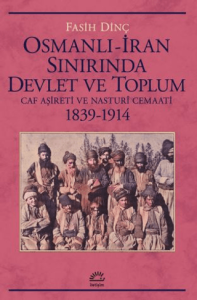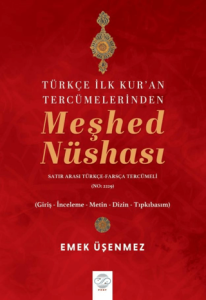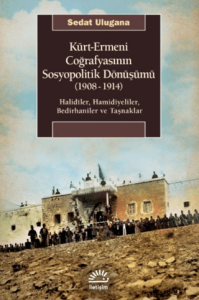9786056496530
215715

https://www.sahafium.com/kitap/presidential-art-collection-1-2-3-takim-ciltli-p215715.html
Presidential Art Collection 1-2-3 Takım (Ciltli)
0.00
With unmatched interest and concern, our 11th Abdullah Gül, who was elected on Augusth 28th, 2007, and his wife Hayrünnisa Gül initiated the restoration and renovation of many Presidential buildings in the (Çankaya and Tarabya premises. In this context, the furnishings of the renovated buildings were replaced, and all artworks within the Presidential collection examined, with a significant number of new works added.
Many innovations were made to preserve, transport, and display the works in the Presidential art collection in conditions that meet world standards. The whole collection was digitized, making it easy and safe to control and track the artworks with the help of optical reader systems. The Presidential Office undertook a pioneering role in preserving for future generations our art heritage which had been neglected for years. In another pioneering attempt by the Presidential Office, the valuable works in the collection in need of conservation and preservation were restored in the context of a project executed with the collaboration of the Rijksmuseum in Amsterdam and Mimar Sinan University of Fine Arts. Permanent channels of interaction were established between the partners that took part in the process, aiming to make the results and outcome of the project available for other institutions to benefit from.
With the personal involvement and supervision of Hayrünnisa Gül, a detailed classification and evaluation of the collection was made, its pros and cons determined. All artworks in the collection possessing historical or artistic value have been conserved and restored. When making new acquisitions, priority was given to those artists whose works were not already featured in the collection. In this context, an attempt at completing the missing pieces
Many innovations were made to preserve, transport, and display the works in the Presidential art collection in conditions that meet world standards. The whole collection was digitized, making it easy and safe to control and track the artworks with the help of optical reader systems. The Presidential Office undertook a pioneering role in preserving for future generations our art heritage which had been neglected for years. In another pioneering attempt by the Presidential Office, the valuable works in the collection in need of conservation and preservation were restored in the context of a project executed with the collaboration of the Rijksmuseum in Amsterdam and Mimar Sinan University of Fine Arts. Permanent channels of interaction were established between the partners that took part in the process, aiming to make the results and outcome of the project available for other institutions to benefit from.
With the personal involvement and supervision of Hayrünnisa Gül, a detailed classification and evaluation of the collection was made, its pros and cons determined. All artworks in the collection possessing historical or artistic value have been conserved and restored. When making new acquisitions, priority was given to those artists whose works were not already featured in the collection. In this context, an attempt at completing the missing pieces
With unmatched interest and concern, our 11th Abdullah Gül, who was elected on Augusth 28th, 2007, and his wife Hayrünnisa Gül initiated the restoration and renovation of many Presidential buildings in the (Çankaya and Tarabya premises. In this context, the furnishings of the renovated buildings were replaced, and all artworks within the Presidential collection examined, with a significant number of new works added.
Many innovations were made to preserve, transport, and display the works in the Presidential art collection in conditions that meet world standards. The whole collection was digitized, making it easy and safe to control and track the artworks with the help of optical reader systems. The Presidential Office undertook a pioneering role in preserving for future generations our art heritage which had been neglected for years. In another pioneering attempt by the Presidential Office, the valuable works in the collection in need of conservation and preservation were restored in the context of a project executed with the collaboration of the Rijksmuseum in Amsterdam and Mimar Sinan University of Fine Arts. Permanent channels of interaction were established between the partners that took part in the process, aiming to make the results and outcome of the project available for other institutions to benefit from.
With the personal involvement and supervision of Hayrünnisa Gül, a detailed classification and evaluation of the collection was made, its pros and cons determined. All artworks in the collection possessing historical or artistic value have been conserved and restored. When making new acquisitions, priority was given to those artists whose works were not already featured in the collection. In this context, an attempt at completing the missing pieces
Many innovations were made to preserve, transport, and display the works in the Presidential art collection in conditions that meet world standards. The whole collection was digitized, making it easy and safe to control and track the artworks with the help of optical reader systems. The Presidential Office undertook a pioneering role in preserving for future generations our art heritage which had been neglected for years. In another pioneering attempt by the Presidential Office, the valuable works in the collection in need of conservation and preservation were restored in the context of a project executed with the collaboration of the Rijksmuseum in Amsterdam and Mimar Sinan University of Fine Arts. Permanent channels of interaction were established between the partners that took part in the process, aiming to make the results and outcome of the project available for other institutions to benefit from.
With the personal involvement and supervision of Hayrünnisa Gül, a detailed classification and evaluation of the collection was made, its pros and cons determined. All artworks in the collection possessing historical or artistic value have been conserved and restored. When making new acquisitions, priority was given to those artists whose works were not already featured in the collection. In this context, an attempt at completing the missing pieces




















